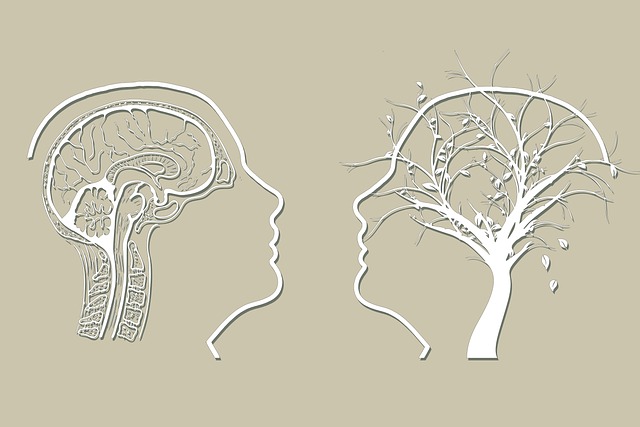Risk Management for Mental Health: Protecting Louisville Blended Families Therapists
Mental health professionals in Louisville Blended Families Therapy face unique risks, including high…….
In the intricate tapestry of family dynamics, blended families have emerged as a modern reality, presenting both unique challenges and opportunities. Louisville Blended Families Therapy (LBFT) is a specialized approach designed to navigate these complexities, fostering healthy relationships and enhancing the well-being of individuals within these family structures. This article aims to provide an in-depth exploration of LBFT, its various facets, global reach, and its profound impact on families worldwide. By delving into its history, core principles, and future prospects, we will uncover the significance of this therapeutic model in a rapidly changing social landscape.
Definition:
Louisville Blended Families Therapy is a form of family counseling that focuses on supporting blended families—those composed of biological parents, stepparents, and children from previous relationships. It addresses the complex emotional, psychological, and practical issues that arise when families merge, ensuring everyone’s needs are met and relationships strengthened.
Core Components:
Historical Context:
The concept of blended families has evolved over time, reflecting societal changes in family structures. In recent decades, LBFT has gained prominence as more couples opt for divorce or remarriage, leading to complex familial relationships. The approach draws from traditional family therapy but adapts to the unique needs of blended families, particularly regarding stepparent-child relationships.
Significance:
LBFT plays a pivotal role in addressing the specific challenges faced by blended families, including stepparent acceptance, sibling dynamics, and managing previous partners’ influence. It aims to create a supportive environment where all family members feel valued, understood, and connected, ultimately enhancing overall family functioning.
International Reach:
Louisville Blended Families Therapy has transcended geographical boundaries, finding relevance worldwide. Many countries have adopted elements of this therapy model, adapting it to suit cultural norms and legal systems. For instance, Europe has seen a rise in stepfamily counseling, with countries like Germany and the UK offering specialized services. In Asia, Japan and South Korea have incorporated aspects of LBFT into their family support systems.
Regional Trends:
Cultural Influences:
LBFT practitioners worldwide adapt their practices to cultural contexts, recognizing that family structures and relationships vary globally. For example, in collectivist cultures, extended family involvement may be more common, while individualistic societies might prioritize nuclear family dynamics. These cultural nuances shape the therapeutic approach, ensuring its effectiveness across diverse settings.
Market Dynamics:
The global therapy market, driven by increasing mental health awareness and changing family structures, presents a favorable environment for LBFT. According to a 2022 report by ResearchAndMarkets.com, the global family therapy market is projected to grow at a CAGR of 7.5% from 2022 to 2030. This growth is attributed to rising demand for specialized services catering to diverse family types.
Investment Patterns:
Private clinics, non-profit organizations, and government agencies are key investors in LBFT infrastructure. Many countries offer public funding for family counseling services, ensuring accessibility. Private practices often cater to higher-income families, providing personalized therapy options. The market also includes online platforms offering remote counseling, expanding access to LBFT globally.
Economic Impact:
Online Therapy Platforms:
The digital revolution has transformed the delivery of LBFT, making counseling more accessible and convenient. Online therapy platforms allow clients to connect with therapists from the comfort of their homes, overcoming geographical barriers. Video conferencing tools enable face-to-face sessions, while secure messaging apps facilitate communication between sessions.
Mobile Applications:
Dedicated mobile apps offer resources, educational content, and mood tracking for blended family members. These apps can provide quick support, reminders for therapy appointments, and ways to practice co-parenting techniques on the go. For example, the “Blended Family Navigator” app offers personalized tools and activities to strengthen relationships.
Artificial Intelligence (AI):
AI has the potential to revolutionize LBFT by personalizing treatment plans, providing initial assessments, and offering 24/7 support. Chatbots can engage in basic therapy sessions, while AI-driven data analysis can identify patterns and predict outcomes, aiding therapists in making informed decisions.
Virtual Reality (VR):
While still in the experimental phase, VR technology could create immersive therapeutic experiences for blended families. Simulated scenarios can help individuals process traumatic events or practice communication skills in a safe virtual environment.
Legal Frameworks:
The legal recognition of stepfamilies varies across jurisdictions, impacting the availability and delivery of LBFT services. Some countries have specific laws governing stepparent rights and responsibilities, while others rely on common law principles. For instance:
Government Support:
Many governments recognize the importance of LBFT and provide funding for related services:
Professional Associations:
These bodies play a crucial role in setting standards, providing education, and advocating for LBFT:
Common Challenges:
Criticisms and Strategies:
Case Study 1: The Johnson Family
A blended family consisting of a remarried father, his two adult children from a previous marriage, and their new stepmother sought therapy due to escalating conflicts. Through LBFT, they improved communication, established clear boundaries, and developed a sense of unity. The therapy sessions helped each member process past hurts and celebrate their shared experiences, leading to a stronger family bond.
Case Study 2: The Parker Family’s Transition
A military family faced challenges after the father’s deployment, with the mother and children struggling to adjust. LBFT facilitated open dialogue about their concerns and provided tools for effective co-parenting during the father’s absence. Upon his return, the therapy sessions helped reintegrate him into family life, fostering a supportive environment.
Case Study 3: Overcoming Stepparent Anxiety
A young stepmother in a newly formed blended family experienced severe anxiety and self-doubt. LBFT offered her a safe space to explore these feelings, providing strategies for building confidence and connecting with the children. With time, she became an integral part of the family, fostering a loving and supportive environment.
Emerging Trends:
Strategic Considerations:
Louisville Blended Families Therapy represents a significant advancement in family counseling, addressing the unique challenges faced by modern blended families. Its global impact is evident, with countries worldwide adopting and adapting this approach to suit their cultural and legal landscapes. As society continues to evolve, LBFT will play an increasingly vital role in supporting families through the complexities of blending. By embracing technological advancements, fostering cultural sensitivity, and advocating for accessibility, the field can ensure that blended families receive the therapy they need to thrive.
Q: Is LBFT right for every blended family?
A: While LBFT is highly beneficial for many blended families, it may not be suitable for all situations. Some families may prefer alternative approaches or have specific needs that require tailored interventions. Individual assessments by qualified therapists are crucial to determining the best course of action.
Q: How do I find a therapist specializing in LBFT?
A: Many mental health professionals now offer specialized services, including LBFT. You can start by asking for referrals from trusted sources like your primary care physician or local family support organizations. Online directories and therapy platforms can also help identify therapists with this expertise.
Q: Can LBFT help stepparents feel more accepted?
A: Absolutely. LBFT provides a safe space for stepparents to process their feelings, gain understanding, and develop positive relationships with their stepchildren. Through therapy, they can address self-doubt, learn effective parenting strategies, and build strong family bonds.
Q: How does LBFT benefit children in blended families?
A: Children in blended families often experience unique challenges, including adjusting to new living arrangements and managing complex family dynamics. LBFT helps them develop coping mechanisms, improve communication skills, and feel more secure. It teaches them about boundaries, empathy, and the importance of healthy relationships.
Q: Is online therapy as effective as in-person sessions for LBFT?
A: Online therapy can be highly effective for LBFT, offering flexibility and accessibility. Video conferencing tools facilitate face-to-face interactions, while secure messaging apps provide ongoing support. However, in-person sessions may be preferable for complex cases or when building intense therapeutic relationships.

Mental health professionals in Louisville Blended Families Therapy face unique risks, including high…….

Louisville Blended Families Therapy offers specialized group facilitation for complex family dynamic…….

Louisville Blended Families Therapy offers specialized strategies for complex family dynamics, focus…….